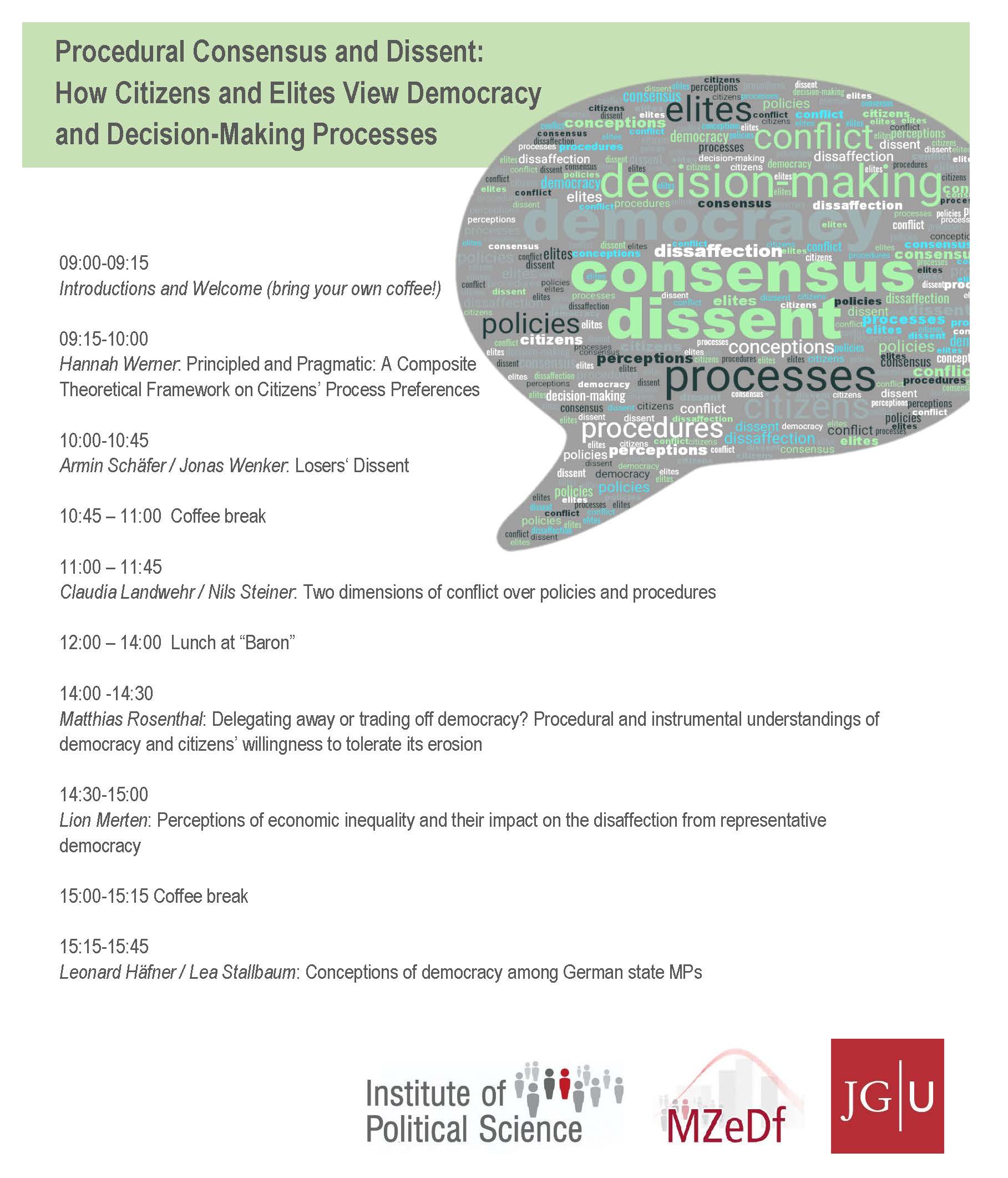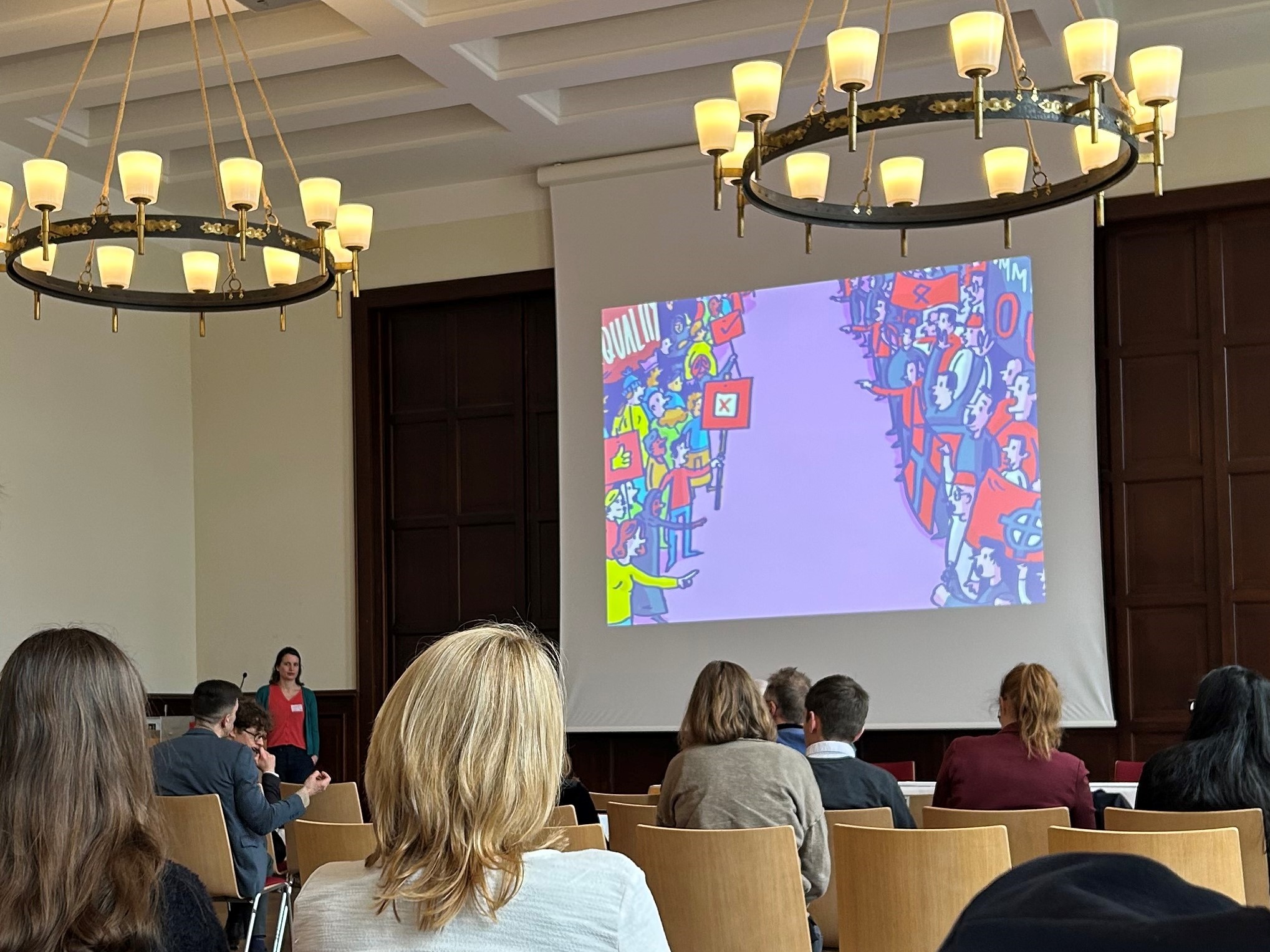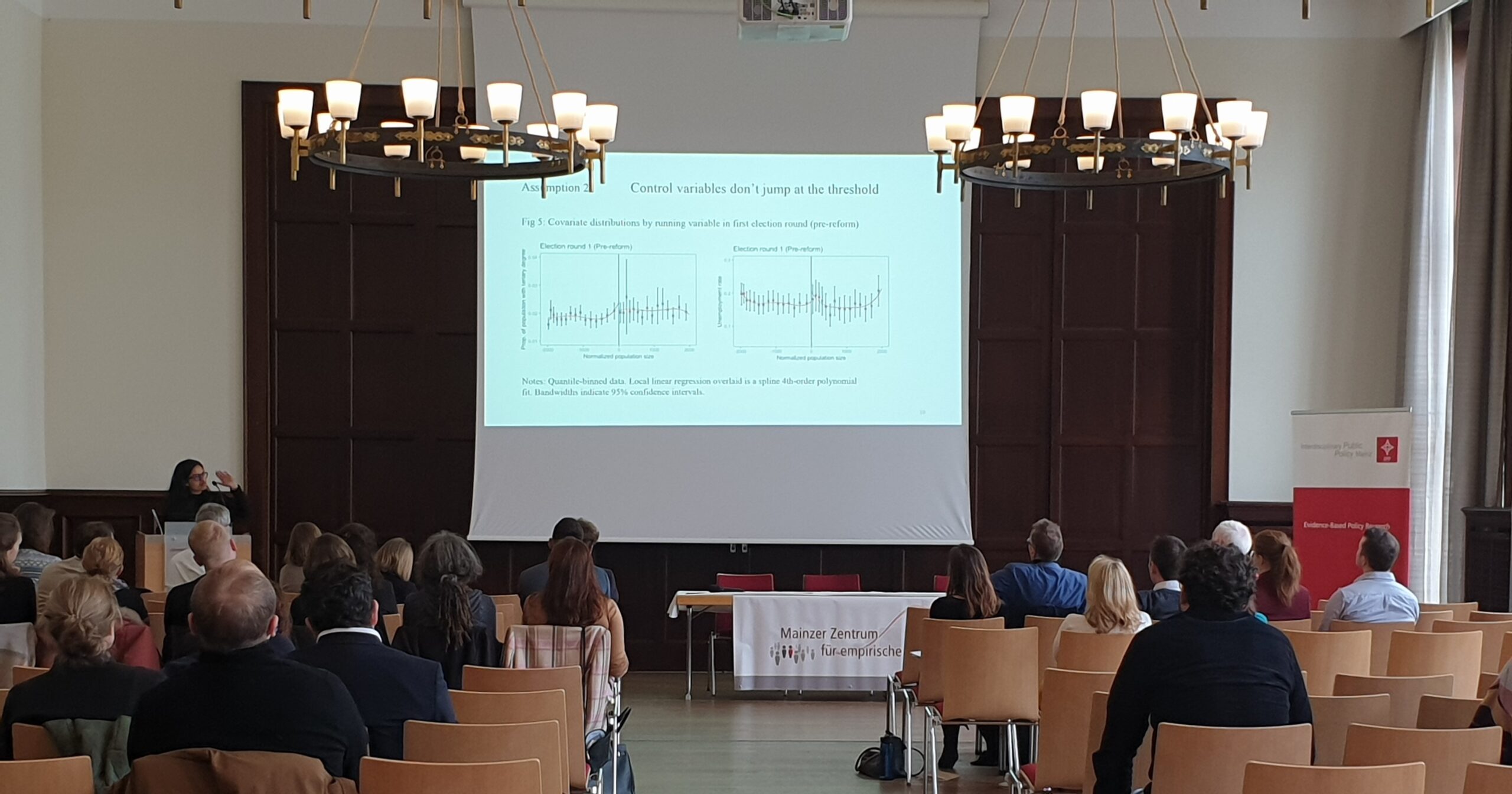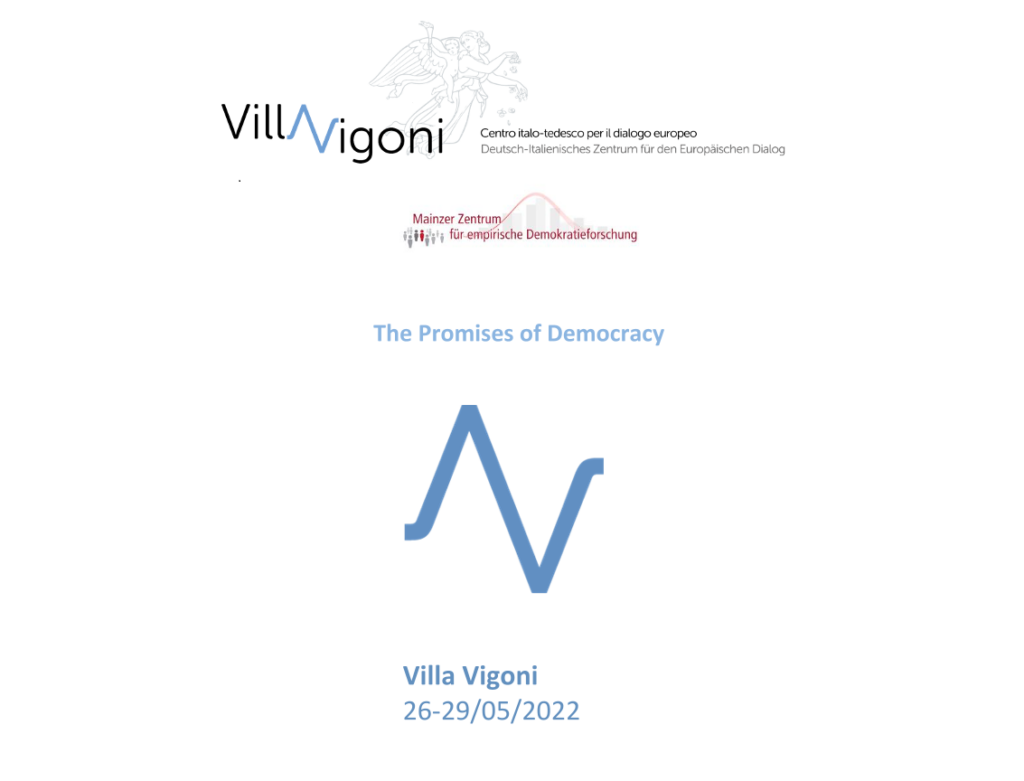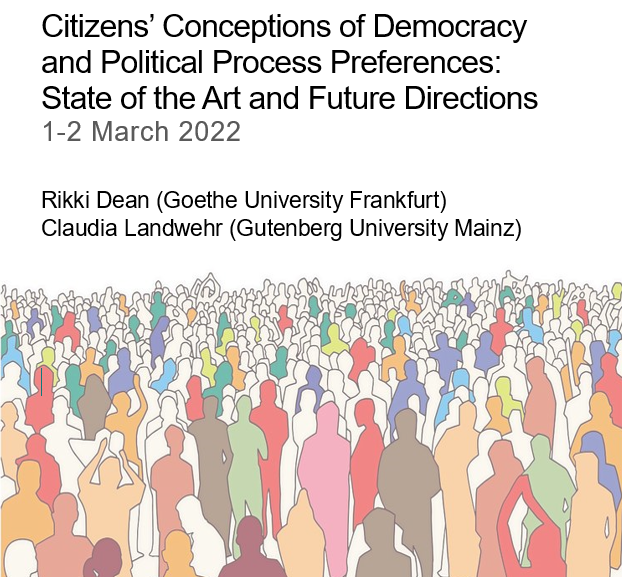Demokratiekolloquium/Democracy Seminars
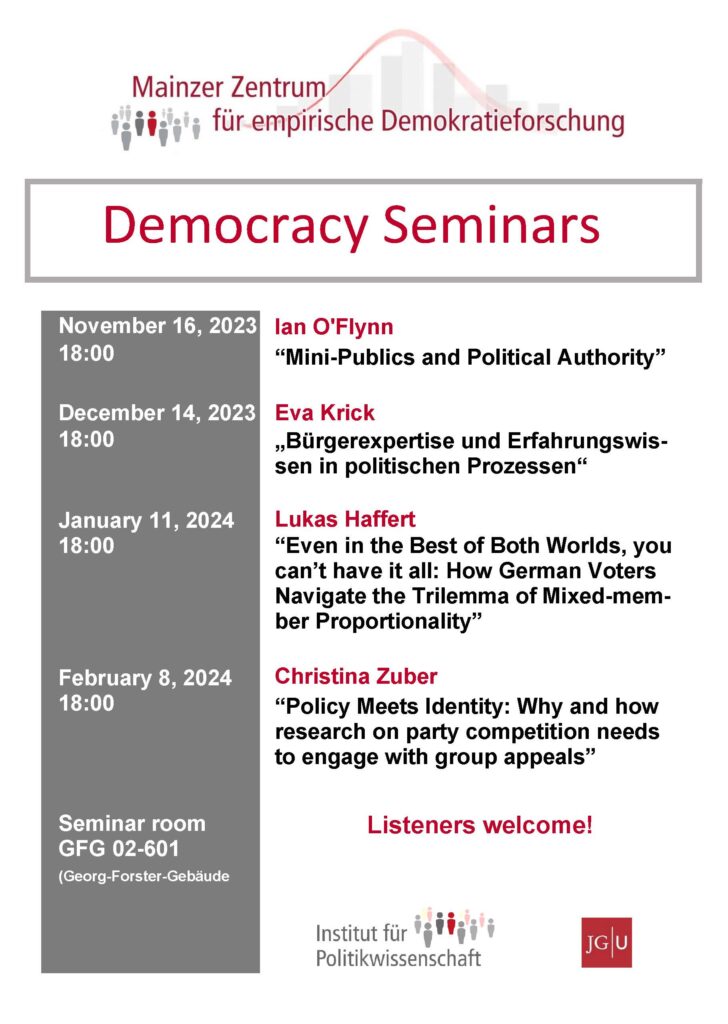
In diesem gemeinsamen Kolloquium der Bereiche “Politische Theorie und Public Policy” sowie “Vergleichende Politikwissenschaft” diskutieren wir aktuelle Manuskripte von Mitarbeiter:innen oder externen Kolleg:innen. Das Kolloquium soll drei- bis viermal im Semester stattfinden, und
wir freuen uns über Themenvorschläge. Für jede Sitzung wird vorab ein Text zirkuliert, den alle
lesen werden. Zu Beginn des Treffens stellen die Autor:innen ihr Manuskript vor und erläutern,
warum sie an diesem Thema arbeiten und wie es sich in die Demokratieforschung einfügt.
Mehr Informationen über das Demokratiekolloquium finden Sie unter diesem Link.
Workshops und sonstige Veranstaltungen
Workshop "Citizen Perspectives on Democracy Aspirations, Evaluations, and Deficits"
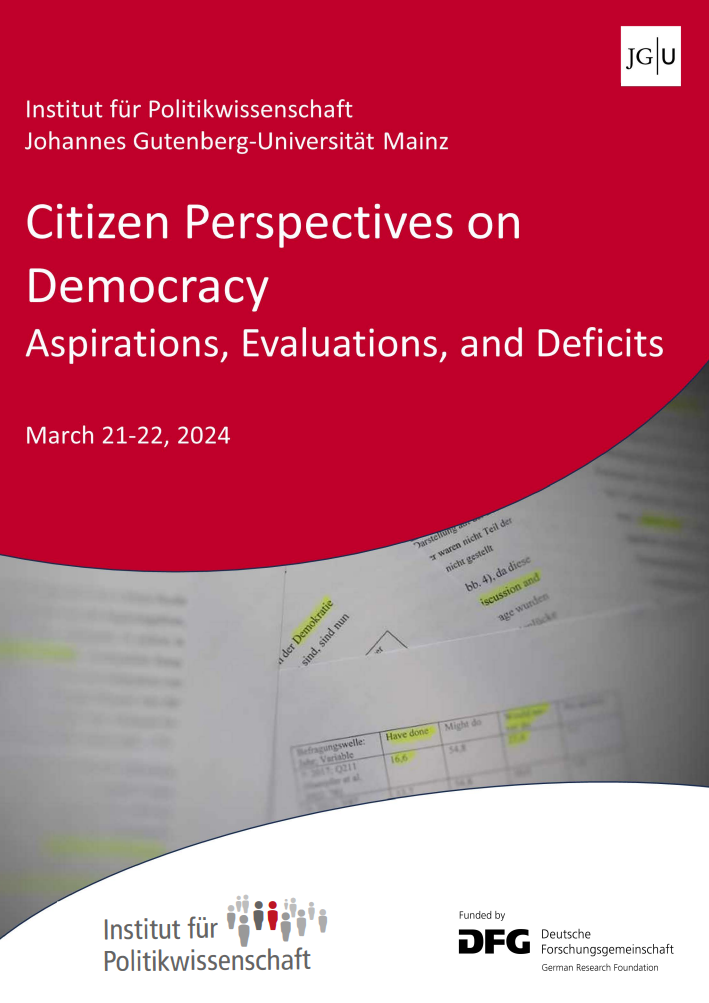
Am 21. und 22.03. findet der Workshop "Citizen Perspectives on Democracy Aspirations, Evaluations, and Deficits" statt.
Mehr Informationen zum Programm finden Sie unter diesem Link.
Workshop "Representation and Responsiveness"
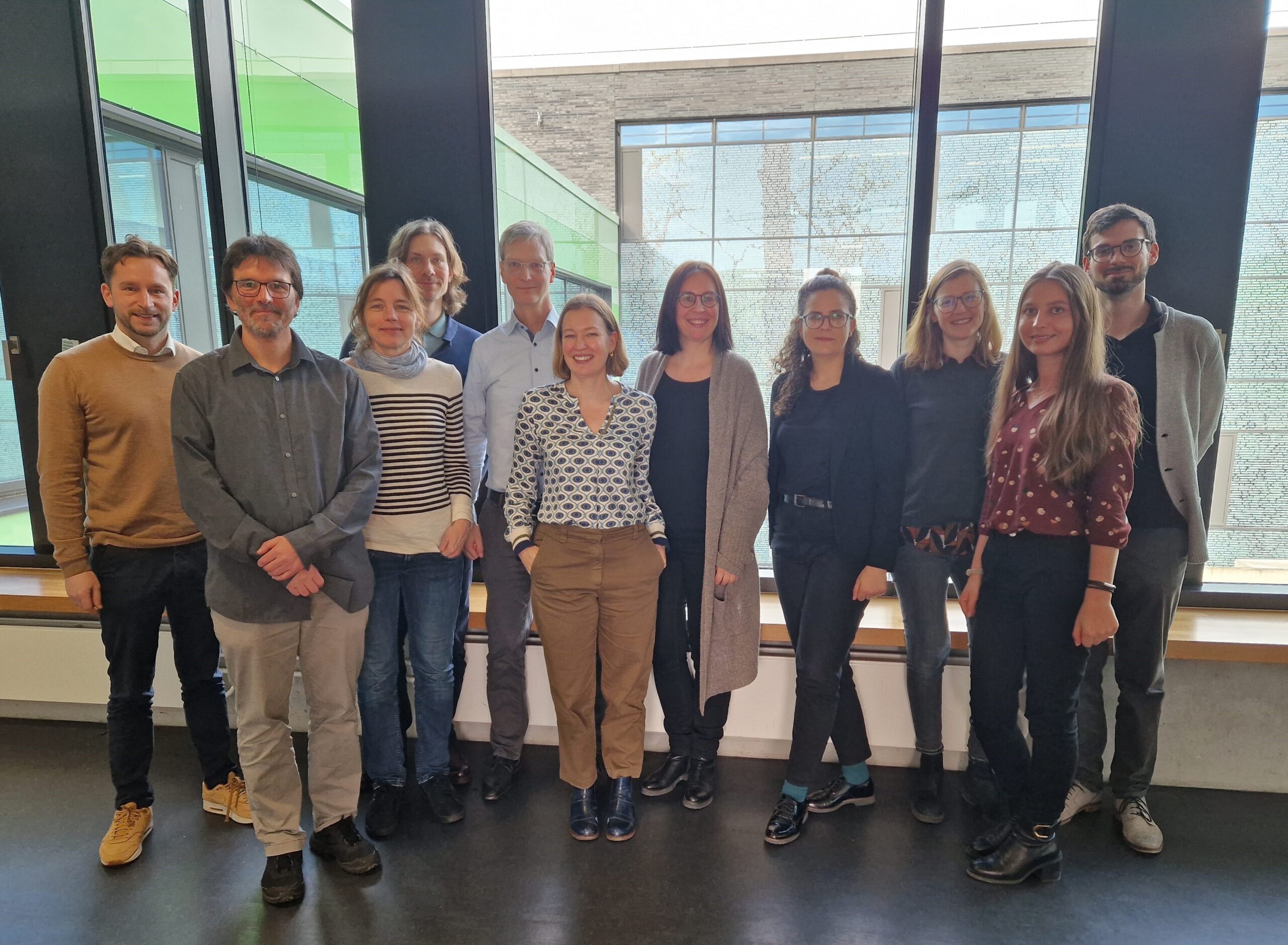
Am 16. Februar 2024 fand der Workshop "Representation and Responsiveness" statt.
Mehr Informationen zum Programm finden Sie unter diesem Link.
Concluding Workshop "Resilient Institutions"
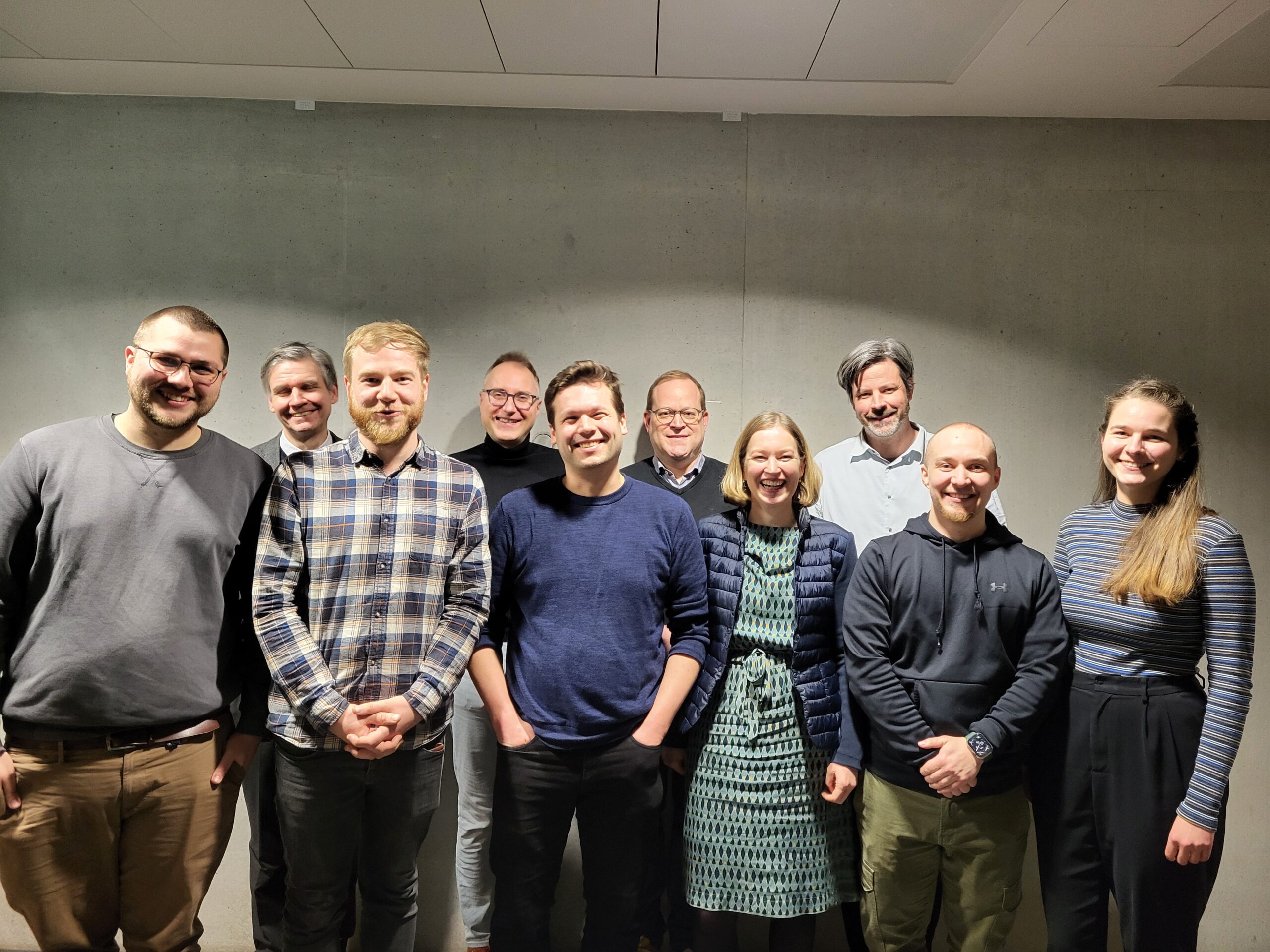
Am 14.02.2024 veranstaltete das Graduiertenkolleg "Resilient Institutions" seinen abschließenden Workshop zu Fragestellungen der Demokratieforschung.
Das Programm finden Sie unter diesem Link.
Workshop „Against Lottocracy“ with Cristina Lafont and Nadia Urbinati
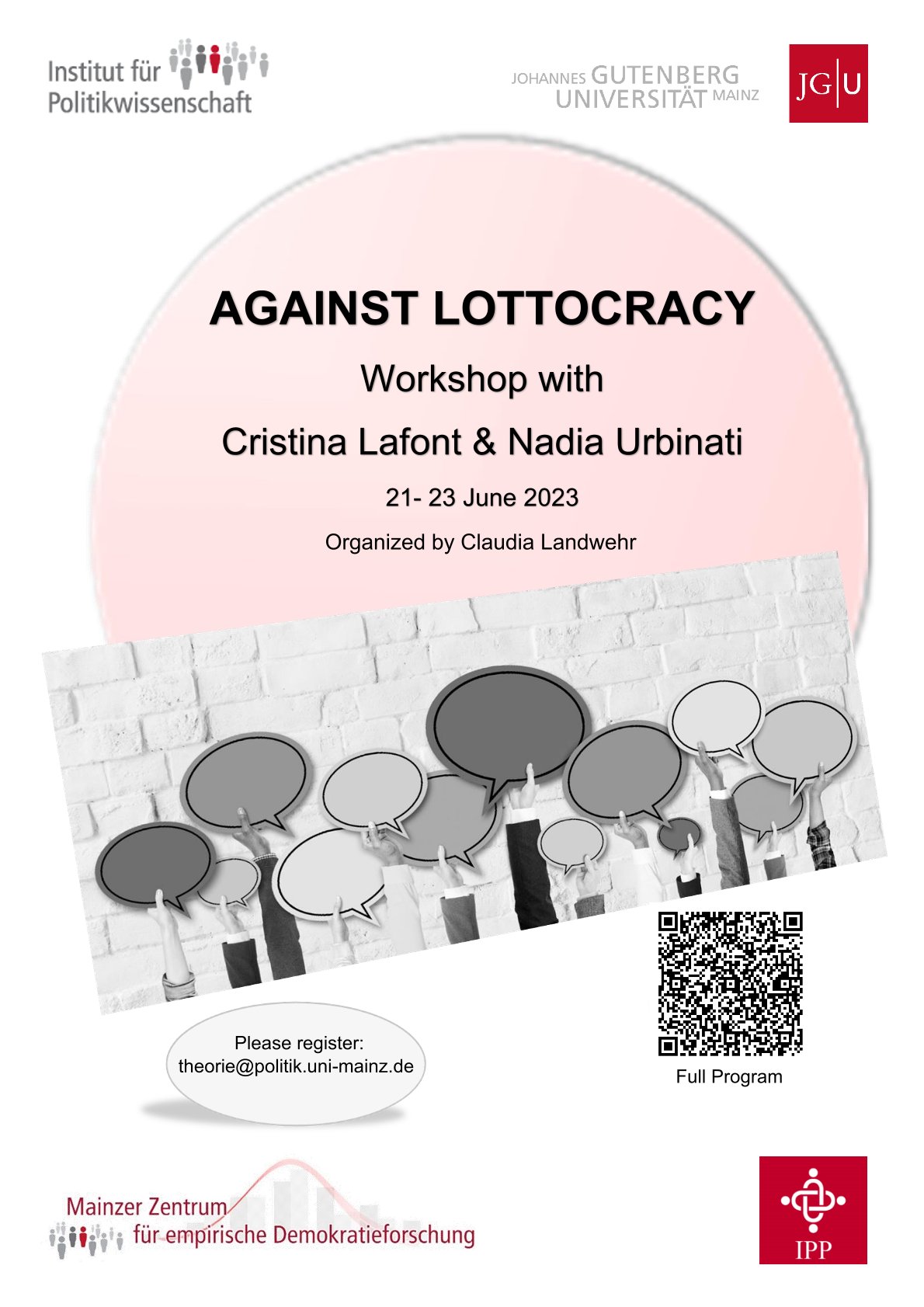
Vom 21. bis zum 23.06.2023 veranstaltete das Institut für Politikwissenschaft in Kooperation mit dem Mainzer Zentrum für empirische Demokratieforschung und Interdisciplinary Public Policy Mainz einen Workshop zum Thema "Against Lottocracy". Eingeleitet wurde der Workshop von einer öffentlichen Vorlesung von Cristina Lafont und Nadia Urbinati: „Defending Democracy Against Lottocracy".
Workshop "As good as it gets?"
Promises and persils of representative democracy
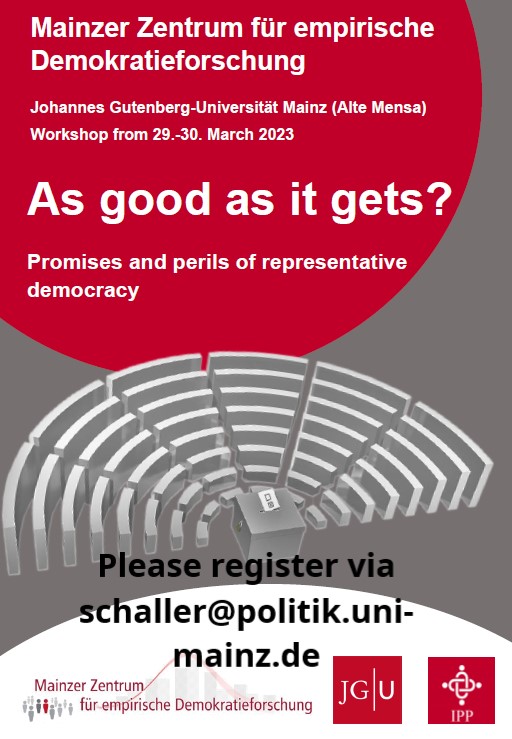 For better or worse, democracy today is representative democracy. For most issues, elected representatives rather than citizens themselves decide. But these representatives must explain their actions to the governed, let the media and opposition parties scrutinize their choices, and face the trial of elections, in which citizens can render their verdict on incumbent governments. Parties are an essential part of representation as they connect citizens and policymakers, aggregate preferences, and offer different programmatic platforms. Yet, representative democracy faces several challenges.
For better or worse, democracy today is representative democracy. For most issues, elected representatives rather than citizens themselves decide. But these representatives must explain their actions to the governed, let the media and opposition parties scrutinize their choices, and face the trial of elections, in which citizens can render their verdict on incumbent governments. Parties are an essential part of representation as they connect citizens and policymakers, aggregate preferences, and offer different programmatic platforms. Yet, representative democracy faces several challenges.
First, citizens often have little trust in parliaments, parties, and politicians. Many poorly represented and think of politicians as detached from their own needs and political preferences. Indeed, recent work suggests that representative democracy does not cater for all citizens equally. At the same time, citizens’ political sophistication is not always high as they do not have strong incentives to acquire detailed information. Both trends make it hard to life up to the deliberative aspirations of representative democracy. Second, scrutinizing governments is difficult as decisions take place in multiple arenas and involve elected and non-elected bodies with different degrees of transparency and accountability. At times, media attention can be short-lived and focused on the most salient issues. In some countries, media take part in and even exacerbate polarization. Third, populist parties challenge existing procedures and institutions. As opposition parties they often mock democratic procedures and in government, even worse, they seek to alter them to their own advantages. Given these and other challenges, there is a debate about how to make representative democracy fit for the future. Potential answers could address either citizens themselves or seek institutional reforms that complement or replace existing procedures. In this two-day workshop, we want to discuss challenges of and reform options for representative democracy.
Tap here to enlarge program (.pdf)
Gastvortrag Daniel Devine am 23. November 2022
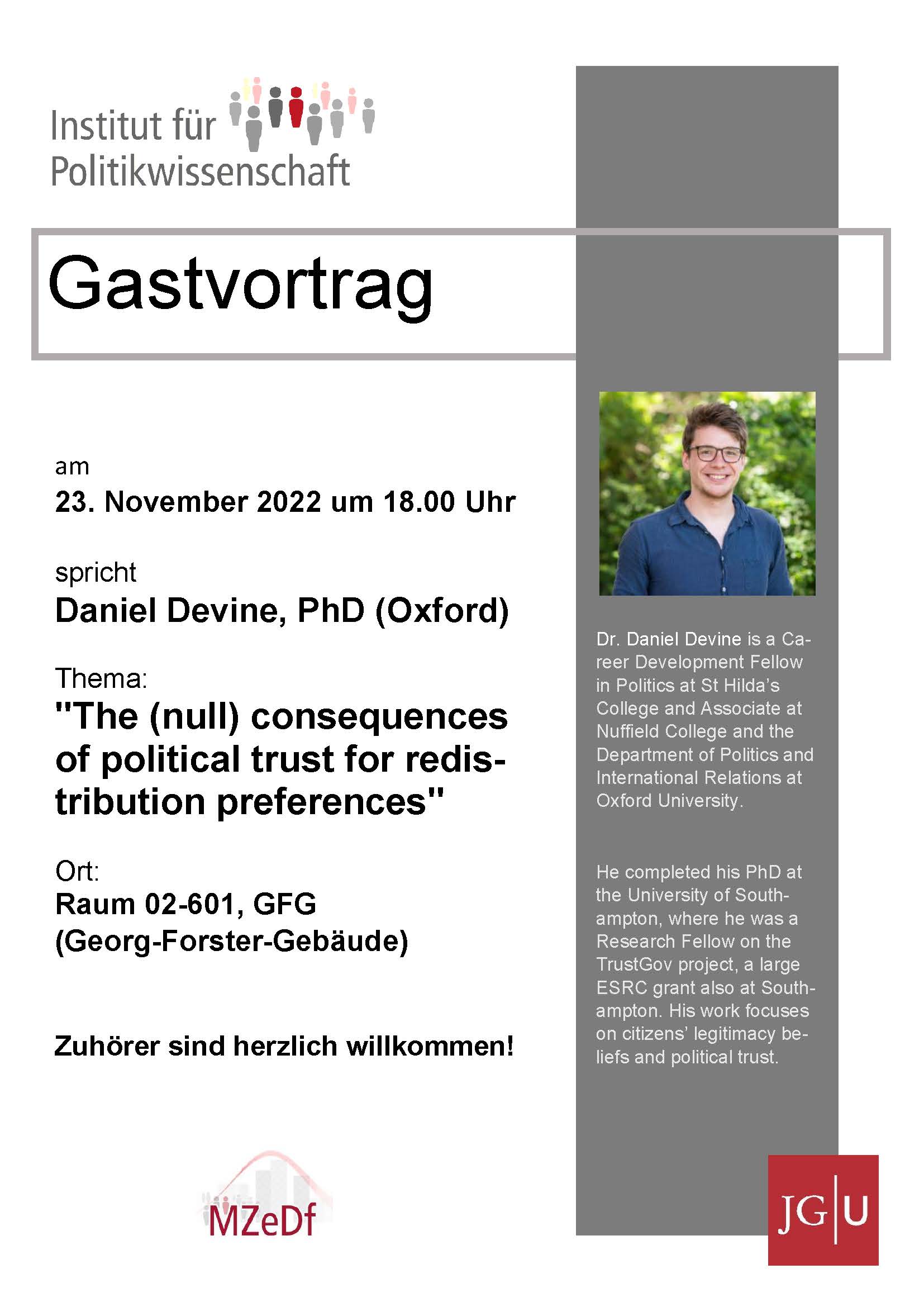
Workshop am 14. Juli 2022 in Mainz: Procedural Consensus and Dissent: How Citizens and Elites View Democracy and Decision-Making Processes
